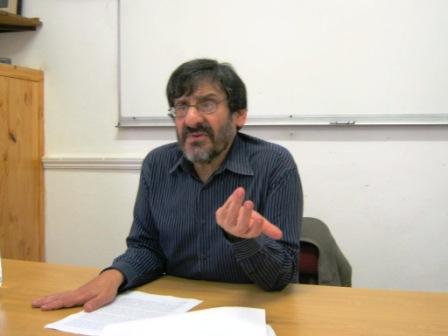
Are we able to try to fix our problems without going through a disaster? This odd-sounding question is raised by Mandela Day, which provided its annual evidence of the strangeness of South Africanness. On every other day of the year (barring world cups and sporting victories), we yell at each other, confirming how little we have moved from the divisions of apartheid. And yet, on this day, many of us show not only that we are capable of finding common ground but that we can do it by focusing on the needs of the poor.
Why this should be so is complicated. But it suggests that we might be more open to compromises than our polarised national debate suggests.
Our elites agree that they need to find each other. In his January 8 statement, President Jacob Zuma talked of the need for a national dialogue, and it has become fashionable in parts of business to support an economic "Codesa". Economic Development Minister Ebrahim Patel talked this week of a negotiated agreement on jobs. But there is little sign that the government, labour or business are serious about compromise.
Why? A disturbing answer is suggested in an article by Nobel economic laureate Joseph Stiglitz, which discussed not this country, but the US. Stiglitz argued convincingly that the current economic crisis is similar to the Great Depression: in both, the problem is a change in the economy's structure, which requires huge investment. Like others before him, he argued it was not the New Deal of the 1930s that pulled the US out of the depression, but the Second World War, because it was only the demands of war that forced it to spend, without resistance, what it needed to revamp its economy.
This implies, of course, that human beings do not respond to crises unless they absolutely have to, because responding means making compromises. Often, only war or some other disaster concentrates minds and persuades people to pay attention.
South Africa fits the description perfectly. Our previous exercise in negotiating our way out of our problems happened only when the country was in danger of a meltdown. From the mid-1980s, if not before, we faced either compromise or disaster. Today, there is no such pressure. There is much hand-wringing as everyone denounces the failing of the other guys, but that is a symptom of the lack of pressure to compromise. In the 1980s and 1990s, economic and political elites started looking at their own failings rather than those of the other side because there was a mounting sense of crisis. Today, they point fingers as they feel they are under no great pressure.
We obviously have severe problems - but they do not yet discomfort the elites enough to make them anxious to fix them. The key elites - the government, business and labour - are "insiders", who can afford to ignore the vast majority of outsiders, who remain voiceless. They are far more likely to get together to ensure someone else pays for our freeways than to negotiate compromises that would start to let the outsiders in.
So does that mean we are forced to muddle through for years, talking about our problems but doing nothing to make the shifts we would need to solve them? Quite possibly, and that is not necessarily a recipe for disaster. Pressures in the wider society could gradually ensure that more people join the ranks of the insiders. And muddling through is a far better option than some of the Messianic ideas peddled at the moment, such as "smashing" the trade unions. By disturbing the delicate balance between the insiders, these quick fixes will do more to cause conflict that would threaten the core economy than to open a brave new world of growth. But a decade or more in which the majority remain outsiders, while the insider elites continue to bicker over who gets what, is not a platform for lasting progress. At best, it is a formula for avoiding the very worst.
So it is worth holding out the possibility that the elites will get the message without needing a catastrophe to do it for them. The difference between our elites and Zimbabwe's is that ours adjusted before they were absolutely forced. Ours may have compromised under pressure, but they did so before they had no other option; Zimbabwe's were not keen to give way even when the writing was displayed on the wall in neon lights.
This means it is not impossible to imagine our elites trying to prevent catastrophe rather than reacting only when it happens. Business leaders could recognise that racially tinged inequality is not a basis for sustained growth, unionists could realise that compromises help spread our resources wider, and the government could acknowledge that it needs to work with the society's key actors rather than relying on its own efforts.
All of this might sound idealistic. But, as any Zimbabwean will readily tell you, relying on some farsightedness is a much better bet than pinning our hopes on a catastrophe.
- Steven Friedman is director of the Centre for the Study of Democracy at Rhodes 老虎机游戏_pt老虎机-平台*官网 and the 老虎机游戏_pt老虎机-平台*官网 of Johannesburg. This article was published on Business Day.
